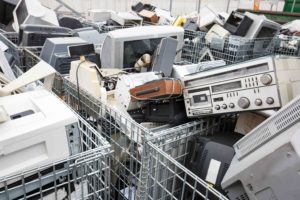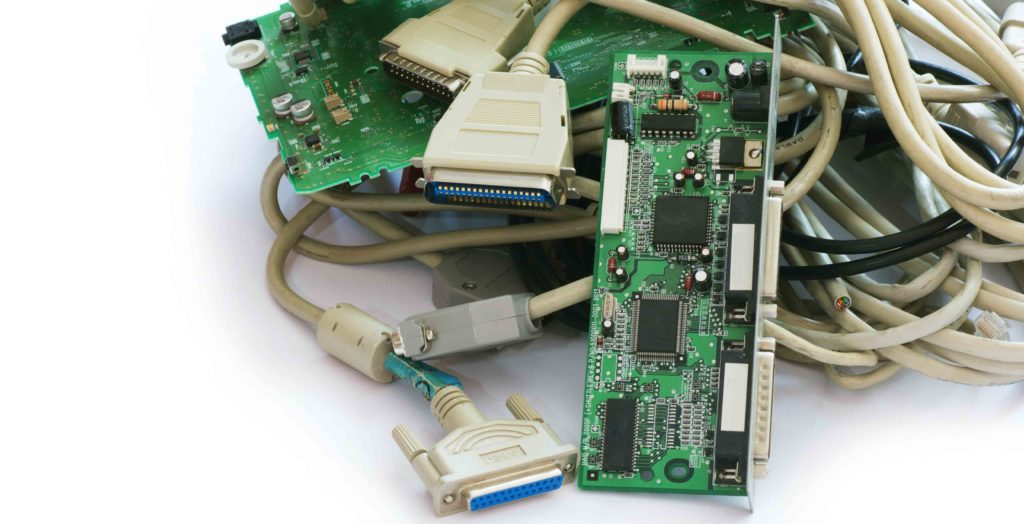Despite being regarded as the ‘clean city’, Washington DC generates around 800,000 tons of waste per year, and like many of America’s largest cities, it’s fair to say that effective recycling isn’t thriving in the nation’s capital.
As of 2019, the waste diversion rate was 23%, a percentage which the city has been hovering around for the last two decades. A huge proportion of waste is going directly to landfill, something the city is desperately seeking to change.
Following the Sustainable Solid Waste Management Amendment Act of 2014, DC has set a goal to increase this number to 80% by 2030. The city has already taken its first step towards achieving this goal by creating an Office of Waste Diversion and interagency working group.
The good news is that over the last few years the District of Columbia has made significant progress in developing a modern waste and recycling system, with 2020 seeing the first notable increase in DC’s waste diversion rate in twenty years.
 The recycling of electronic waste, however, continues to pose a problem for Washington, the rest of the US, and indeed, the world. With electronic equipment of all types still all too often going to landfill.
The recycling of electronic waste, however, continues to pose a problem for Washington, the rest of the US, and indeed, the world. With electronic equipment of all types still all too often going to landfill.
Electronic waste, or e-waste as it’s most commonly referred to, is more challenging to recycle than most other waste streams. Often bulky, difficult to transport, full of toxic materials, and growing at an alarming rate, electronic waste, much like the electronic devices we use, is on the rise.
In fact, it is considered among the fastest-growing waste streams in the world due to the speed at which we produce, use, and replace electronics—and the demand for digital products doesn’t look like it will ease any time soon.
So, to help raise awareness and combat the ever-growing issue of e-waste in Washington, we’ve compiled a guide filled with the information required to properly recycle electronics in DC.
What types of electronic waste can be recycled in DC?
Washington’s Zero Waste initiative website provides a very useful tool for those wishing to recycle electronics in DC but aren’t exactly sure how to do so. The What Goes Where tool allows users to simply type the name of the item they wish to dispose of into a search engine and get the information they need.
A simple A-Z list of all the acceptable recyclable electronic devices in DC, provided by the Department of Public Works, can also be found below:
- Audio/visual equipment
- Audio cassettes
- Batteries*
- Camcorders
- Carbon monoxide detectors
- CD Rom drives CD/DVD players
- Cell phones
- Old computers and monitors
- Connectors / cords / wires
- Copy machines
- Fax machines
- Floppy drives / hard drives
- Memory chips
- Network / video / sound cards
- Pagers
- Power supplies
- Printers
- Scrap computer plastic
- Scrap computer metal including precious metals
- Smoke detectors
- Tape drives
- TVs/Satellite receivers
- VCRs
- VCR tapes
- Video games and software
*As per The Department of Public Works website: to safely dispose of batteries with lithium and cadmium, or batteries of greater than 9 volts, put clear, masking or electrical tape on the battery terminals or sandwich the batteries between two layers of tape (e.g. flat button cells). These batteries should be placed in a container separate from other batteries that don’t require being taped.
All of the items listed above can be dropped off at the Ft. Totten Transfer Station, 4900 John F. McCormack Drive, NE, every Saturday between 8 am and 3 pm (except holidays) and on the Thursday before the first Saturday of the month from 1 pm to 5 pm.
Why should I recycle electronics in Washington DC?
There are countless reasons to recycle electronics in Washington, as evidenced by the growing number of people and businesses doing so, and the increasing government regulations enforcing the proper recycling of e-waste in DC.
 Improper disposal of e-waste has a destructive impact on the planet and it’s estimated that over 3 million tons of electronic waste is generated in the US alone every year.
Improper disposal of e-waste has a destructive impact on the planet and it’s estimated that over 3 million tons of electronic waste is generated in the US alone every year.
Proper recycling of e-waste conserves natural resources as valuable materials recovered from old electronics can be used to create new products. The correct recycling of e-waste also ensures the appropriate handling of toxic materials and thereby protects human health and the environment.
Furthermore, the Sustainable Solid Waste Management Act of 2014 bans the disposal of Covered Electronic Devices (CED) in the trash. All CED must be correctly recycled or reused. This law attests to the city’s commitment to its Zero Waste pledge and highlights the fact that attitudes towards recycling electronics in Washington are evolving.
Where can I recycle electronics in DC?
The Sustainable Solid Waste Management Amendment Act requires manufacturers of CED sold in the district to collect and recycle electronic waste generated in the city. This requirement has provided many opportunities for individuals and businesses alike to correctly recycle e-waste in DC.
Collection events are becoming an increasingly popular method of disposing of e-waste throughout Washington, and the Department of Energy and Environment promotes its eCYCLE DC collection events where residents can properly recycle electronics in DC with ease.
Alternatively, the following facilities also provide drop-off centers throughout the state where you can safely recycle electronics in Washington.
- Electronic Recyclers International
- 1101 Pennsylvania Avenue NW STE 600
- +1 800-374-3473
- eRecure Recycling LLC
- Scott Cir NW, Washington, DC 20036
- +1 877-844-1844
- Recycling Drop-Off Center
- Alexandria, VA, United States
- +1 703-746-4410
- IT Recycling Solution-eWaste DC
- 6218 Georgia Ave NW suite 1-513
- +1 202-655-2644
- Household Hazardous Waste & Electronics Recycling Center
- Alexandria, VA, United States
- +1 703-746-4410
- Waste Management – Northeast Transfer Station
- 2160 Queens Chapel Rd NE NE
- +1 202-526-1965
Some manufacturers throughout Washington even accept mail-back programs as per their recycling plans. You can visit individual manufacturer websites for more information and find a list of manufacturers with mail-back programs here.
How else can I recycle electronics in DC?
For further information, The Department of Energy and Environment provides resources on how to recycle e-waste in DC specifically for individuals, manufacturers, and retailers. Additionally, a full list of current Statutes and Regulations is available to ensure you keep up to date with current laws regarding the recycling of e-waste in Washington.
 For any working but unwanted electronics, donation is the ideal option of disposal. Donating electronics ensures the devices remain in circulation rather than being prematurely disposed of despite not reaching end-of-life. Unwanted items can naturally be passed on to friends and family members. Another practical option is to simply donate these devices to non-profit organizations.
For any working but unwanted electronics, donation is the ideal option of disposal. Donating electronics ensures the devices remain in circulation rather than being prematurely disposed of despite not reaching end-of-life. Unwanted items can naturally be passed on to friends and family members. Another practical option is to simply donate these devices to non-profit organizations.
Arguably the best way to recycle electronics in DC is not to recycle at all, but rather, repair. Washington is full of electronic repair stores that can both repair your devices and offer advice on how best to maintain them.
What does the future hold for electronics recycling in DC?
Despite the many challenges that recycling electronics poses, the future of recycling e-waste in DC is bright. The many laws set in place regarding recycling e-waste in Washington, as well as the many efforts made by DC residents, show that the city is on the right path to achieving increased recycling rates. Sustainability education remains crucial in furthering these efforts to achieve zero waste in Washington.
RTS offers training to help your business prepare for the future of electronic waste in Washington DC. Our LEED-accredited professionals are capable of providing on-site and virtual training programs for you and your employees. Their knowledge and expertise will help your business achieve its sustainability goals and meet compliance. For more information, contact RTS today to discuss your requirements.
Additionally, if you’d like to learn more about recycling e-waste in our other locations within the US, please refer to our other electronics recycling guides:

